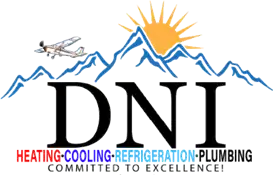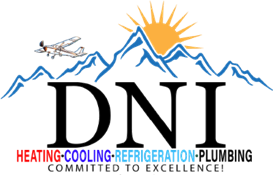
Will the R-454B Shortage Make AC Repairs More Expensive in Fort Collins, CO?
Fort Collins, nestled against the Rocky Mountains, enjoys a unique mix of high plains sunshine and mountain air. With over 230 sunny days a year and frequent summer heat waves, having a reliable air conditioning system isn’t just about comfort—it’s a necessity. Homeowners and businesses alike count on their HVAC systems to keep interiors cool and healthy, especially during those long stretches of warm weather.
But as the HVAC industry evolves to meet stricter environmental regulations, changes in refrigerants—like the growing use of R-454B—are starting to impact everything from system design to routine AC repairs. If you’ve recently heard about a possible shortage of R-454B refrigerant, you may be wondering what it means for your wallet and your home comfort. Let’s take a closer look.
What Is R-454B and Why Is It Important?
R-454B is a new-generation refrigerant developed as a more environmentally friendly alternative to older refrigerants like R-410A. It’s classified as a hydrofluoroolefin (HFO) blend, and it’s gaining popularity because of its significantly lower global warming potential (GWP). To put it in perspective, R-410A has a GWP of around 2,088, while R-454B’s GWP is about 466—roughly 78% lower.
This shift isn’t just a trend—it’s part of a broader effort to reduce greenhouse gas emissions across the HVAC industry. As a result, many major manufacturers, including Trane and Carrier, have already committed to phasing out R-410A in favor of R-454B in their new systems.
Why Is There a Shortage of R-454B?
Like many supply chain issues we’ve seen over the last few years, the R-454B shortage is a result of multiple factors converging at once:
-
Regulatory Push: The move away from high-GWP refrigerants like R-410A has created a sudden surge in demand for alternatives like R-454B.
-
Limited Production Capacity: Since R-454B is relatively new to the market, production hasn’t yet ramped up to meet this increased demand.
-
Global Distribution Bottlenecks: International manufacturing and transportation delays have caused disruptions in the availability of HVAC components and refrigerants.
-
Installation Readiness: Many HVAC systems that use R-454B also require new parts, training, and tools. This slows down adoption and creates a backlog in service and supply chains.
How Does This Affect AC Repairs in Fort Collins?
Here in Fort Collins, where temperatures can regularly spike into the 90s during the warmer months, timely AC repairs are critical. If your system uses or is being converted to R-454B, the current shortage could potentially lead to longer repair times or limited refrigerant availability.
Let’s break down some key areas of impact:
1. Higher Costs for Refrigerant Replacement
If your AC system experiences a refrigerant leak or requires a recharge, the cost of R-454B could be higher than usual due to limited supply. Even though R-454B is designed to be more affordable in the long run, scarcity is pushing up market prices temporarily. While we won’t quote specific figures here, it’s safe to say that customers may notice an uptick in the cost of refrigerant-related repairs.
2. Delays in Repairs or Installations
Some newer HVAC systems are designed specifically for R-454B, and older systems may not be compatible with this refrigerant without a major retrofit. That means if your AC requires parts tied to R-454B or a full refrigerant swap, delays in the supply chain could mean longer wait times for repairs or system replacements.
3. Limited Access to Certified Technicians
Handling R-454B isn’t the same as handling older refrigerants. Because of its mildly flammable classification (A2L), technicians must be specially trained and certified to handle it safely. While DNI Heating, Cooling, Refrigeration, & Plumbing, Inc. has the expertise and certifications required, not all HVAC providers are equally prepared. This can reduce the number of available contractors during peak repair season, potentially increasing service wait times across the region.
Is Your System Affected?
Not all AC systems in Fort Collins use R-454B—yet. If your unit is older and still runs on R-410A or even R-22, you might not be affected by this specific shortage right now. However, it’s worth noting that both R-22 and R-410A are being phased out, and their availability is decreasing, too.
If you’re considering replacing your system or are curious about what type of refrigerant your current unit uses, it’s a good idea to get a professional inspection. Knowing what refrigerant your system uses—and whether it’s compatible with newer options—can help you plan ahead and avoid surprise costs later.
Planning Ahead: What Homeowners in Fort Collins Can Do
While the R-454B shortage may create short-term challenges, there are several steps you can take to reduce its impact and stay ahead of costly repairs:
1. Schedule Preventive Maintenance
Regular maintenance helps your AC system run efficiently and reduces the chances of breakdowns that could lead to refrigerant replacement. Routine checks can catch small leaks early and prevent larger, more expensive repairs.
2. Consider a Refrigerant Audit
Not sure which refrigerant your system uses? A refrigerant audit by a certified HVAC technician can provide clarity. DNI Heating, Cooling, Refrigeration, & Plumbing, Inc. offers professional inspections that help homeowners make informed decisions about their systems.
3. Stay Informed on System Upgrades
If your system is nearing the end of its lifespan, consider talking to an HVAC professional about units that use R-454B or other low-GWP alternatives. Understanding your options now could save you time, money, and stress when the time comes to upgrade.
4. Work with a Reputable HVAC Company
In times of industry change, it’s more important than ever to work with a knowledgeable, trusted provider. DNI Heating, Cooling, Refrigeration, & Plumbing, Inc. stays ahead of trends, trains its technicians on the latest refrigerants, and ensures customers get clear answers and dependable service.
Why the Shift to R-454B Matters
The transition to R-454B isn’t just a supply issue—it reflects a bigger picture of climate-conscious change. The HVAC industry is responsible for a significant percentage of global greenhouse gas emissions due to refrigerant leaks and inefficient systems.
By using a refrigerant with a lower GWP, homeowners in Fort Collins can play a part in reducing environmental impact. R-454B has been approved under the U.S. Environmental Protection Agency’s SNAP (Significant New Alternatives Policy) program and is widely considered one of the best next-generation options for residential and commercial HVAC systems.
The U.S. Climate Alliance and the American Innovation and Manufacturing (AIM) Act have both set clear targets for reducing HFC emissions over the next decade. As a result, manufacturers, service providers, and consumers are all being asked to adapt. That means increased availability of eco-friendly systems—and for now, some growing pains as we all make the switch.
For AC Services in Fort Collins, CO, Contact DNI Heating, Cooling, Refrigeration, & Plumbing, Inc., Today
If you’re concerned about how the R-454B shortage could affect your AC system—or if you’re simply due for maintenance—now is the perfect time to contact DNI Heating, Cooling, Refrigeration, & Plumbing, Inc.
We’re proud to serve Fort Collins and the surrounding Northern Colorado communities with expert HVAC services rooted in professionalism, reliability, and transparency. Our team is fully certified to work with the latest refrigerants, including R-454B, and we stay informed on all regulatory changes so you don’t have to.
Whether you’re looking to extend the life of your current system or prepare for a future upgrade, our team is here to guide you with friendly advice and dependable service. We’ll help you navigate the challenges of today’s HVAC industry while ensuring your home stays comfortable year-round.
Contact us today to schedule a consultation or learn more about how we can help with your cooling needs. We’re here to keep Fort Collins cool—no matter what changes the industry brings.

